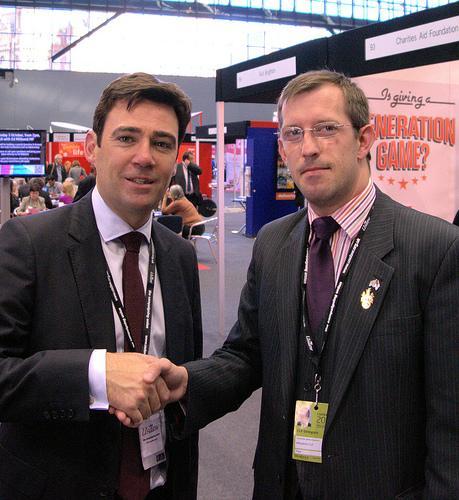
Burnham (left): surviving bitter smears from Conservative opponents
The National Health Service has always been a public service which has been the subject of furious debate among politicians. Debate has not been over its existence (though ‘Orange Book’ Liberal Democrats have questioned it) or necessarily over how it should be run, but about who can be trusted to run it. And at no time has this been fiercer than in the past week when Labour and the Conservatives have been blaming each other for the failings identified by the Keogh Report. Government MPs have blamed Andy Burnham, the Shadow Health Secretary who held the parallel role in the New Labour government in 2009-10, for the avoidable deaths of 13,000 patients. Jeremy Hunt has repeatedly called for Burnham’s resignation, despite having barely held on to his own Cabinet career.
14 NHS hospital trusts were subjected to emergency intervention after Keogh identified these as institutions in which persistent failings had led to the deaths of patients from 2005 to 2013. Various causes were identified, including lack of human and physical resources, a culture of ‘target chasing’ and mediocre management. However, the report disputes the figure of 13,000; Keogh believes that only a small percentage of that figure could in fact have been avoided. Furthermore, it was not Burnham who was responsible for the NHS in the year 2011-12, which Hunt claims was the “darkest day” for the Labour Party as “thousands” of patients died in the 14 trusts: Andrew Lansley had been Health Secretary for two years, but was probably preoccupied with his shambolic NHS privatisation legislation.
Keogh himself is deeply ashamed that the Government has attempted to politicise his findings, and has been overheard personally apologising to Burnham, who expressed regret that a “good report” was being distorted by ministers for what has been described as “low politics”. Certainly exaggerating mortality figures, blaming the blameless, and twisting a report that is solely concerned with looking after patients is not an ethically sound form of political debate. It is worse than George Osborne’s attempt to trace the causes of Mark Philpot’s killing of his children to welfare dependency. Not only is it utterly contemptible politics; it simply doesn’t make sense.
_
Andy Burnham did not create the mediocrity in these hospitals, nor did he take any decision which either put patients at risk or covered up problems that existed. There is less basis for attributing deaths to him in his brief tenure at the Department of Health than there is to Andrew Lansley and Jeremy Hunt who between them took over three years to intervene in these hospitals. Therefore it is difficult to attribute any blame to ministers of either political hue: this is a collective failure of management and staff at lower levels. Should the Conservatives fail to adopt a non-partisan perspective, they will not succeed in convincing the British people that Andy Burnham, or the Labour Party as a whole, cannot be trusted to run the NHS. The Conservative leadership will be seen as doing what it is doing: playing games with Britain’s most treasured public service.
Under Burnham’s tenure, NHS performance was in most cases the best that it has been since the 1960s. Waiting times were at record lows; a number of new, high-quality hospitals had been built; and patient satisfaction was at an all-time high. As the Coalition’s privatisation and £20 billion of “efficiency savings” take their toll, it is not Labour which will be remembered for damaging our healthcare system. As the old saying goes: “Those in glass houses should not criticize the conduct of ministers who have implemented sound policies for the benefit of the public”.

